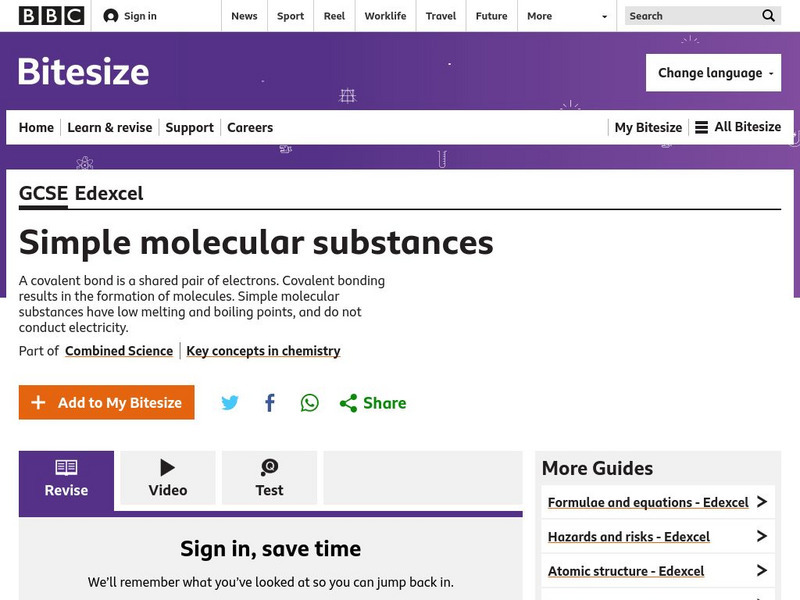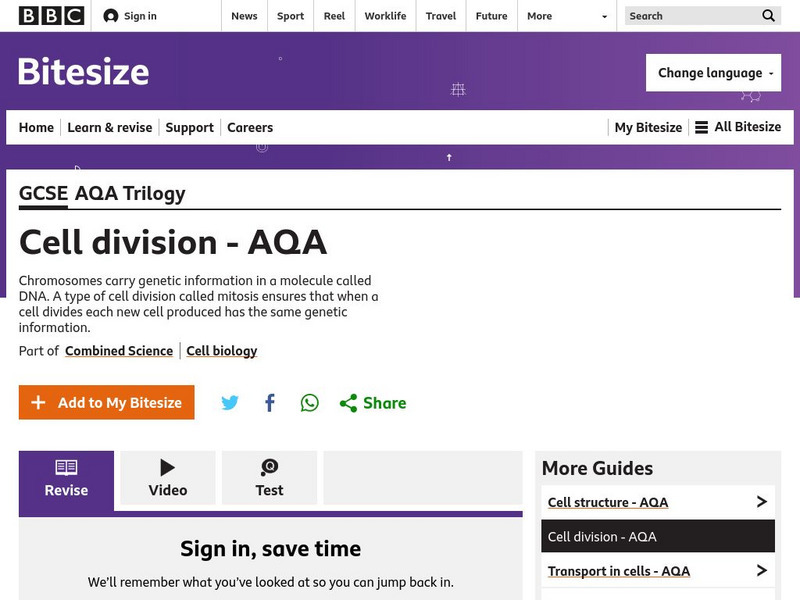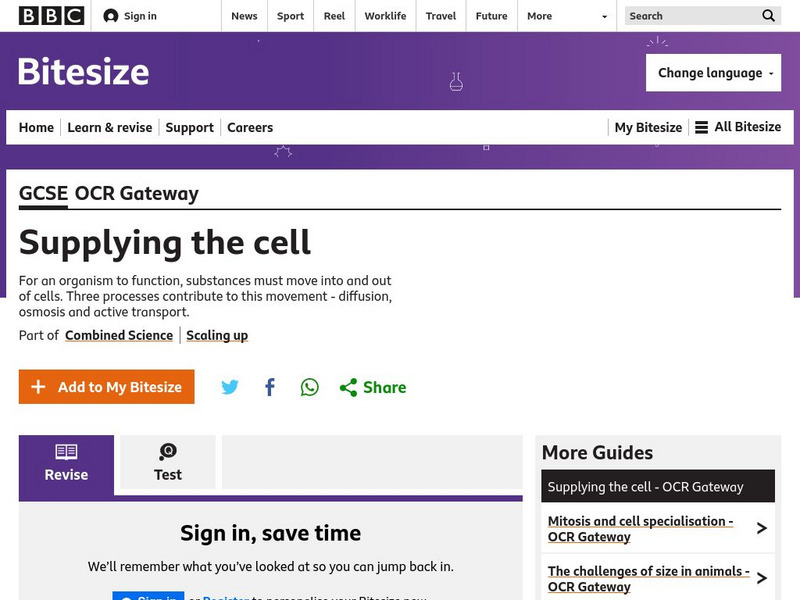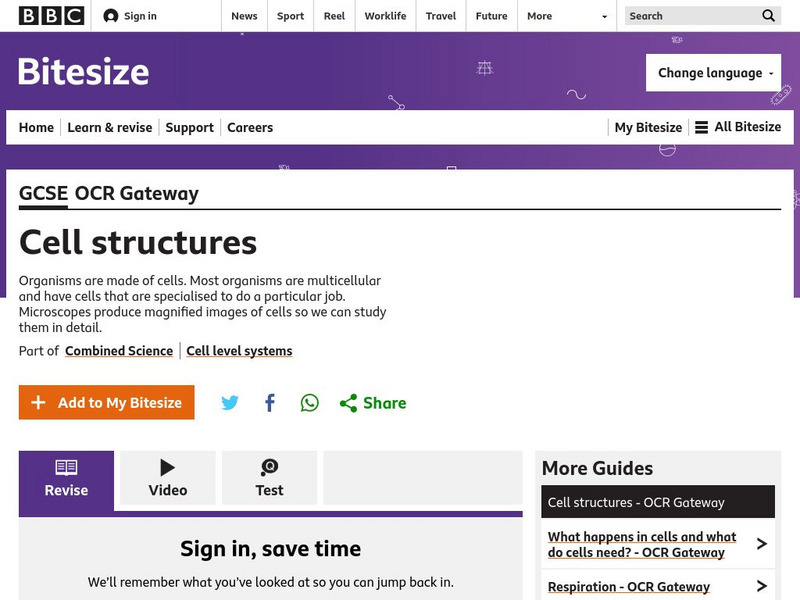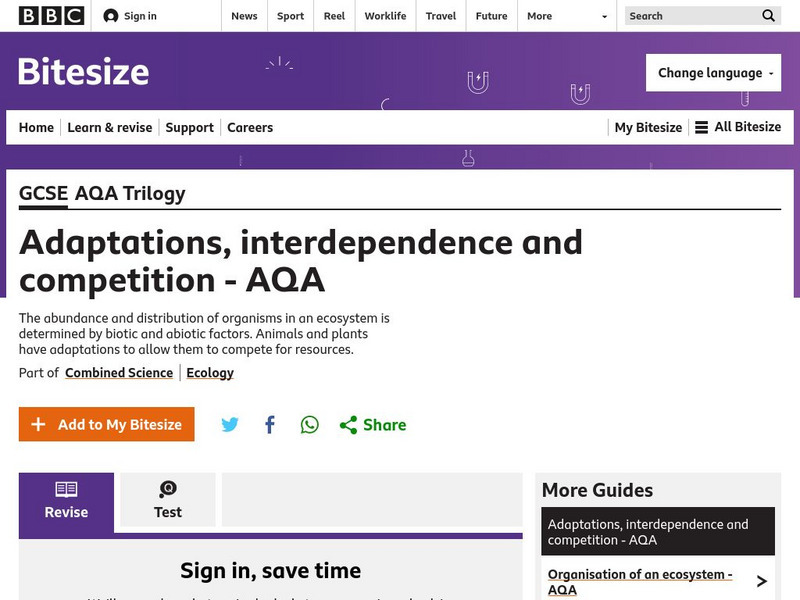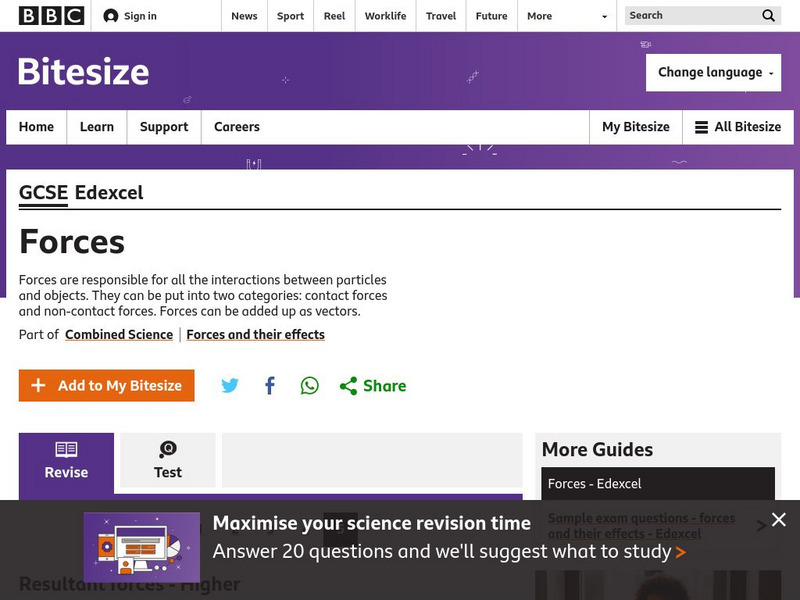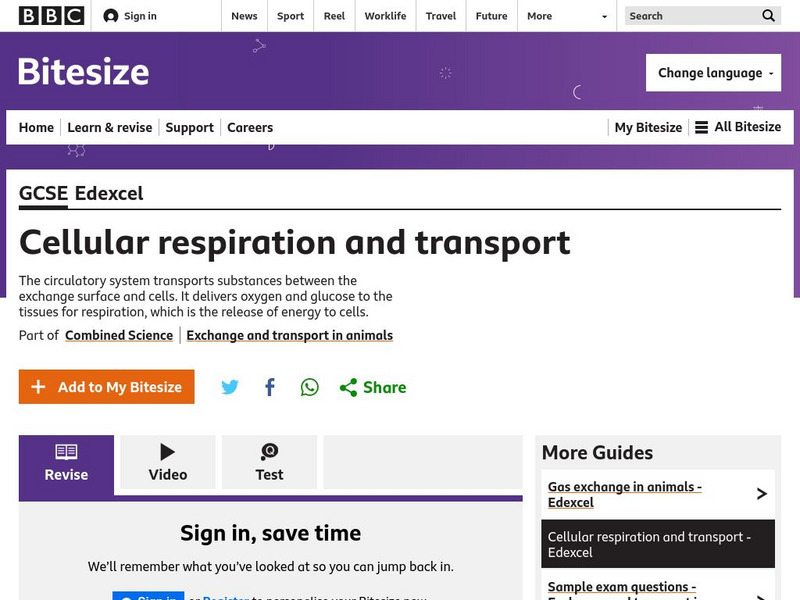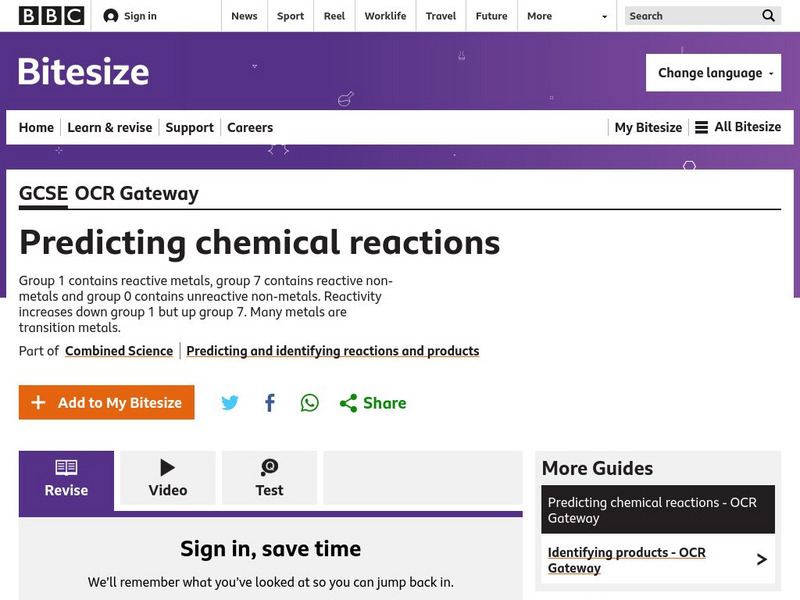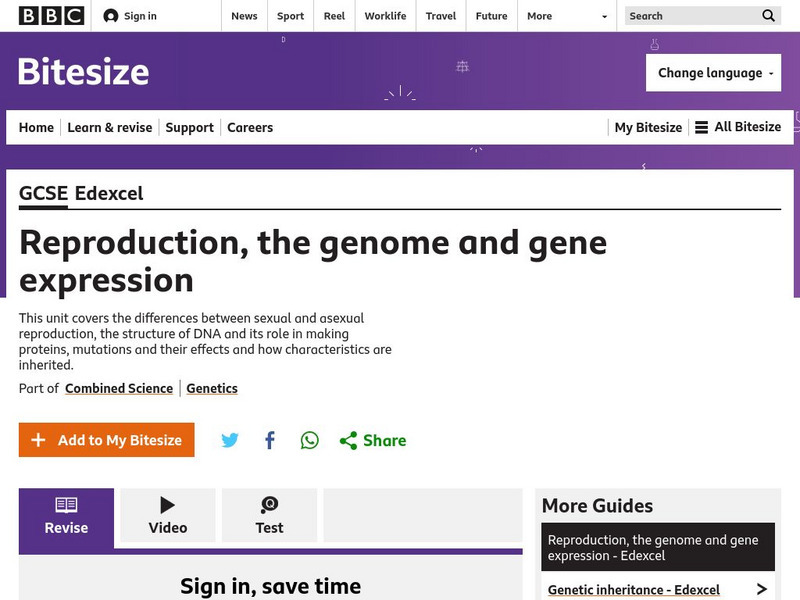BBC
Bbc: Gcse Bitesize: Biology (Combined Science)
This site provides a list of topics and links to the Biology Combined Science courses and the contents of each course.
BBC
Bbc: Gcse Bitesize: Physics (Combined Science)
This site provides a list of the topics and links to the Physics (Combined Science)courses offered in GCSE Bitesize and a list of contents of each. The topics include the following: Energy, Electricity, Matter, Radioactivity, Forces,...
BBC
Bbc: Gcse Bitesize: Electrolysis
Copper can be extracted from its ore by heating it with carbon. Impure copper is purified by electrolysis in which the anode is impure copper, the cathode is pure copper and the electrolyte is copper sulfate solution. It provides links...
BBC
Bbc: Gcse Bitesize: General Properties of Waves
Light travels as waves. Waves can be described by their amplitude, wavelength and frequency. The speed of a wave can be calculated from its frequency and wavelength.
BBC
Bbc: Gcse Bitesize: Chemical Calculations
You should be able to calculate the masses of reactants and products from balanced equations, and the formula of a compound from information about reacting masses.
BBC
Bbc: Gcse Bitesize: Covalent Bonds
A covalent bond is formed between non metal atoms, which combine together by sharing electrons. Covalent compounds have no free electrons and no ions so they don't conduct electricity.
BBC
Bbc: Gcse Bitesize: Dna, Genes and Chromosomes
Chromosomes are made from DNA. Genes are short sections of DNA. Genetically identical cells are produced by a type of cell division called mitosis. In sexual reproduction, a male gamete fuses with a female gamete to produce a new cell....
BBC
Bbc: Gcse Bitesize: Cell Division Aqa
Chromosomes carry genetic information in a molecule called DNA. A type of cell division called mitosis ensures that when a cell divides each new cell produced has the same genetic information.
BBC
Bbc: Gcse Bitesize: Supplying the Cell
For an organism to function, substances must move into and out of cells. Three processes contribute to this movement - diffusion, osmosis and active transport. Diffusion is the process by which useful materials and waste products move in...
BBC
Bbc: Gcse Bitesize: Electric Circuits
Current transfers energy around circuits. Circuit components have various properties that can be measured and then used to make circuits for control and also circuits for testing other components.
BBC
Bbc: Gcse Bitesize: Evolution Aqa
Evolution is the change of inherited characteristics within a population over time through natural selection, which may result in the formation of a new species. Fossils provide a record of organisms that lived a long time ago. They also...
BBC
Bbc: Gcse Bitesize: Genetic Inheritance Aqa
Our genes are inherited from our parents, and the different combinations of these genes make us unique. Genetic inheritance controls the characteristics of all living things. This lesson focuses on the inheritance of biological sex in...
BBC
Bbc: Gcse Bitesize: Cell Structures
Organisms are made of cells. Most organisms are multicellular and have cells that are specialised to do a particular job. Microscopes produce magnified images of cells so we can study them in detail. This lesson focuses on animal cells.
BBC
Bbc: Gcse Bitesize: Adaptations, Interdependence and Competition Aqa
The abundance and distribution of organisms in an ecosystem is determined by biotic and abiotic factors. Animals and plants have adaptations to allow them to compete for resources.
BBC
Bbc: Gcse Bitesize: Forces
Forces are responsible for all the interactions between particles and objects. They can be put into two categories: contact forces and non-contact forces. Forces can be added up as vectors.
BBC
Bbc: Gcse Bitesize: Cellular Respiration and Transport
The circulatory system transports substances between the exchange surface and cells. It delivers oxygen and glucose to the tissues for respiration, which is the release of energy to cells.
BBC
Bbc: Gcse Bitesize: Motion
This lesson focuses on motion including definitions, how to calculate the change in velocity and the average acceleration, and a link to an assessment.
BBC
Bbc: Gcse Bitesize: Types of Chemical Reactions
This lesson focuses chemical reactions using acidic and alkaline solutions, the pH scale which measures the acidity or alkalinity of a solution, and how to use a pH meter. A link to an assessment is also provided.
BBC
Bbc: Gcse Bitesize: Predicting Chemical Reactions
This lesson focuses on predicting chemical reactions using The Group 1 elements in the Periodic Table are known as the alkali metals. They include lithium, sodium and potassium, which all react vigorously with air and water. It provides...
BBC
Bbc: Gcse Bitesize: Making Fertilizer
This lesson focuses on fertilizers including how they replace nitrogen, phosphorus and potassium in the ground; how the plants get the nutrients; a table showing examples of fertilisers, their formula, and the essential elements they...
BBC
Bbc: Gcse Bitesize: Newton's Second Law
This lesson focuses on Newton's Second Law including the formula Force = mass to the x power acceleration, an example of how to calculate the force needed to accelerate based on mass, and a link to a test.
BBC
Bbc: Gcse Bitesize: Combined Science
This site offers links to six different exams over courses studied in GCSE Bitesize. They include AQA Synergy, AQA Trilogy, Edexcel, Eduqas, OCR 21st Century, and OCR Gateway.
BBC
Bbc: Gcse Bitesize: Reproduction, the Genome and Gene Expression
This lesson focuses on DNA including it's structure,components,and how it goes together to form genomes. It also provides to links to a video and a test.







